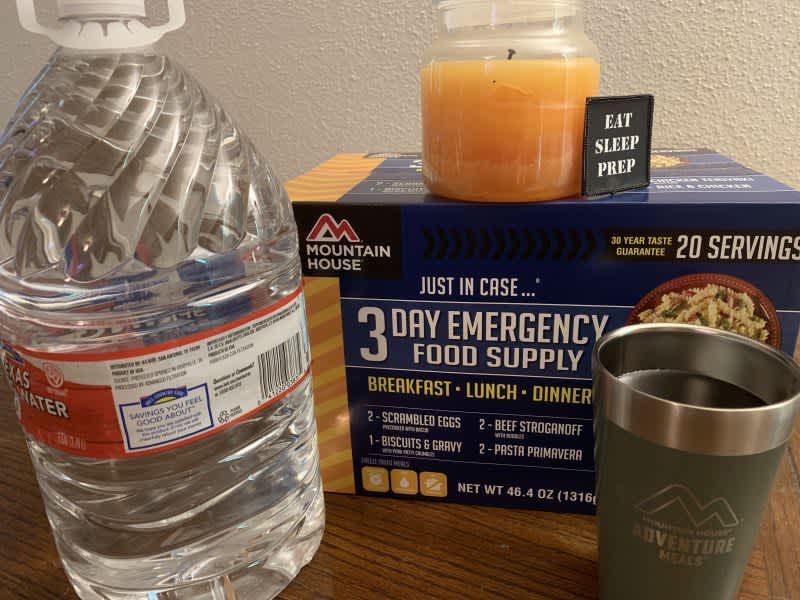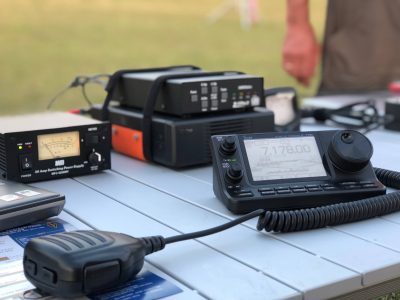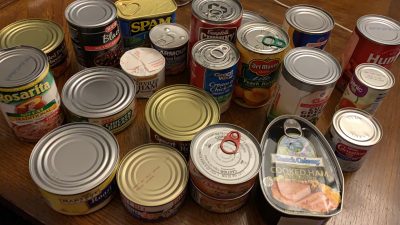Morgan Rogue 04.25.22

When you think about everything going on in the world, it doesn’t hurt to be prepared for lights out, the everyday craziness of life as well as general emergencies and disasters.
It seems like so many things are out of our control, but by being prepared we can take control again and know that we’ll be able to handle whatever comes our way.

Even if you’re not hardcore into preparedness, it’s really a smart idea to have a few things around your home to ease your stress during a stressful time.
Here are 10 items every household needs for emergencies:
Fire extinguisher
Not only does every household need a fire extinguisher, but you need to know how to put out certain fires. For instance, if you have a grease fire, do not throw water on it, instead, try to place a lid on top of the pan/pot and throw baking soda on the fire. For electrical fires, you’ll want a fire extinguisher that is designated for electrical fires, usually rated C.
Check the gauge of your fire extinguisher, if it’s in the ‘ok’ position, it should be fine and doesn’t need to be charged or inspected. However, if you feel it should be inspected, call your local fire station.
To go along with a fire extinguisher, don’t forget about smoke detectors with fresh batteries in them.

Food and water
You should have at least a two-week supply of food and water in your house for emergencies. Nonperishable foods of any kind that you and your household will enjoy. Store them in a cool, dark place and keep them organized inside of a bin for easy access and organization.
Maintenance tools
Screws, screwdrivers, hammers, nails, tape, tarps, scrap wood, gas and water shut off tool, multitool, flashlights, rope, and any other type of basic maintenance tools. Walk around your home and look for things that might take special tools to fix or replace.
Hygiene items
Toilet paper, travel bidet, toothpaste, soap, washcloths, shower bag, no-rinse shampoo and soap, a 5-gallon bucket compost toilet, and so on. Keep your hygiene items in mind.
Paper products
Doing dishes during an emergency takes a lot of resources that could be better served elsewhere in the meantime. There’s no shame in stocking up on paper plates and plastic silverware to use when you need to save your precious resources for something else.

Alternative cooking option
Something like a propane Coleman camp stove so you can keep cooking even when the lights go out.
NOAA weather radio
Having an NOAA emergency radio can provide vital information when stuck inside your home. It can give you weather updates, you can get news updates through local AM/FM radio and some radios even have the ability to be flashlights or even have SOS options.
Lighting
Lots and lots of headlamps, flashlights, candles, matches, lighters, solar lights, and plenty of batteries.
Entertainment
Don’t forget about board games, books, portable DVD players, deck of cards, crafts, and whatever else will keep you happy and entertained during an emergency or disaster!
Warmth and cooling
For warmth:
- Buddy Heater propane heater
- Woodstove
- Fireplace
- Sleeping bags
- Blackout curtains
- Reflectix
For cooling:
- Blackout curtains
- Battery-powered fans
- Spray bottles (to spritz water on yourself)
- Electrolyte powder or drops
Look around your home and how you currently heat and cool it and figure out alternative ways when there is no power.
Extra items to consider:
- Generator; gas, solar, diesel, propane
- Foldable solar panel
- Defense item(s) including motion sensor lights, cameras, and additional security on doors and windows
- AquaPod Kit
- Water filter(s)

There are plenty of other ideas and items to keep in mind. Take a walk around your home, take an assessment of your everyday life and needs and figure out how you might be able to thrive in an emergency, even without modern conveniences such as light, dishwasher, oven, etc.
Conquer tomorrow, by preparing today!

